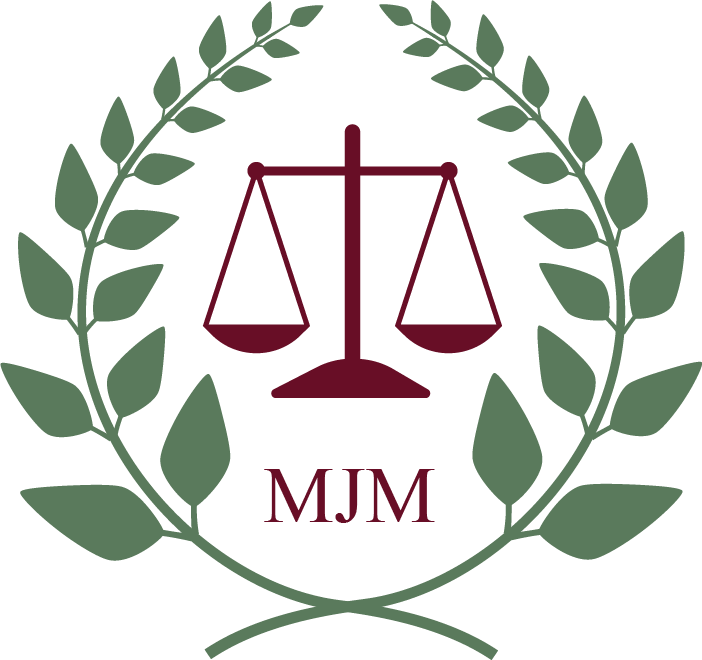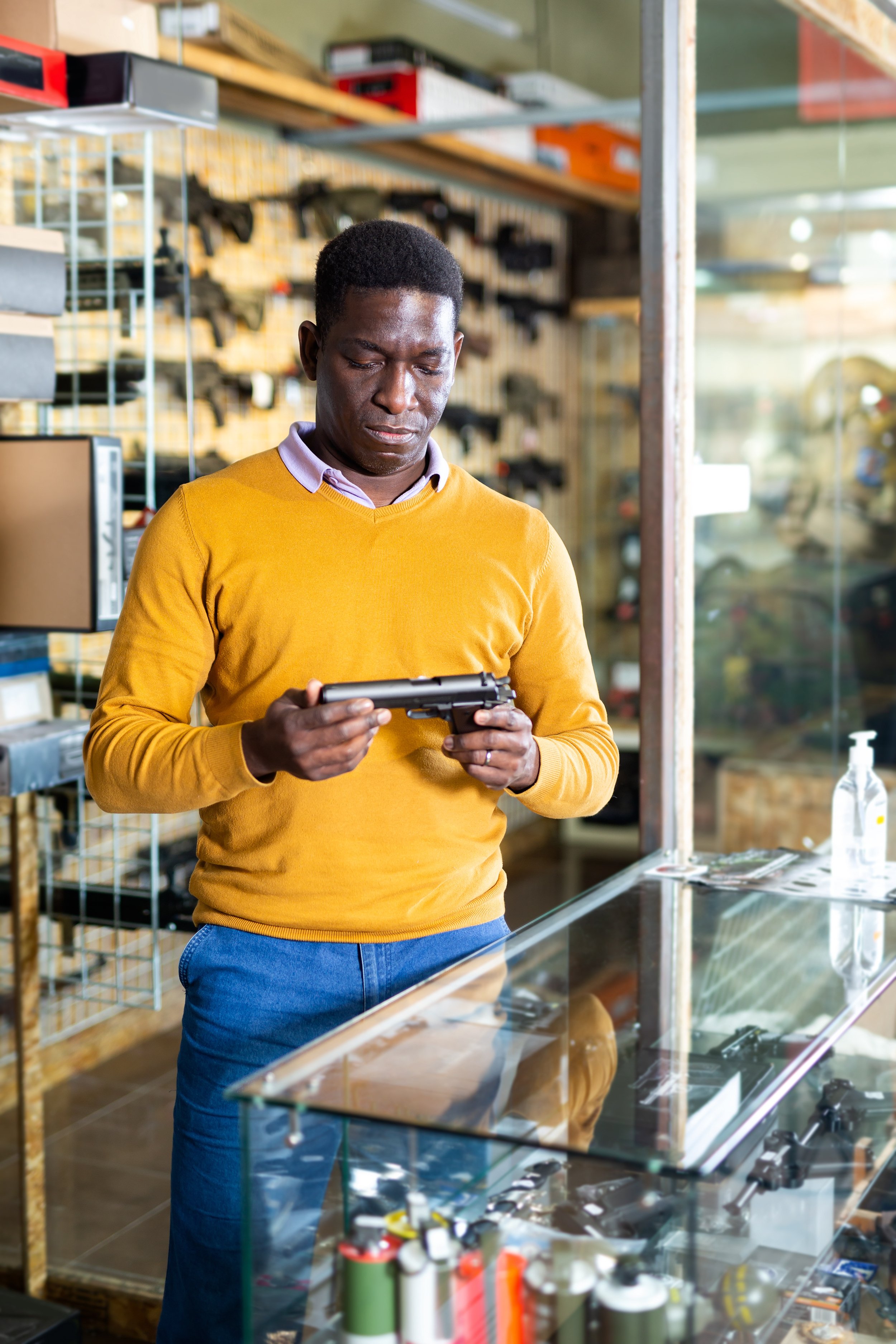Can I Buy a Gun After My Expungement?
Expungements and Gun Rights are not necessarily connected.
Lately, a lot of people have been contacting me about buying a gun because of the crime we are seeing across the metro area. Often, people call who have been convicted of a felony and want to know how to get their gun rights back. The short answer is that it’s hard. Even though Louisiana law allows most felons to possess a firearm after ten years have passed from the completion of sentence, under federal law, a Louisiana felony conviction will forever bar the felon from owning or possessing a firearm or ammunition unless the applicant receives an expungement, was sentenced under Louisiana Code of Criminal Procedure Article 893, and ten years have passed since the completion of sentence.
Louisiana’s 10-Year Rule
Under Louisiana Revised Statute 14:95.1, certain felony convictions prohibit you from possessing a firearm for 10 years after your conviction. All drug offenses, crimes of violence, sex offenses, etc. are crimes that prohibit you from possessing a firearm. Certain other charges like passing a bad check, theft, etc. may not prohibit you, but a lawyer should be consulted before possessing a firearm. Once your conviction “cleanses,” which means more than 10 years have passed since the COMPLETION of your sentence, you are permitted to possess a firearm. This is not the same as being able to purchase a firearm.
expungements and Federal Gun Laws
Federal law allows people who have had their rights “restored” to purchase and possess firearms, but, under the federal interpretation of the Louisiana laws, that may prove difficult in practice. 18 U.S.C. §§ 921(a)(20) and (a)(33)(B)(ii) say that "[a]ny conviction which has been expunged or set aside or for which a person has been pardoned or has had civil rights restored shall not be considered a conviction for purposes of " the federal gun ban.
To determine whether someone's civil right to own a gun has been restored, federal courts "look to the law of the jurisdiction of conviction. . . and consider the jurisdiction's entire body of law." United States v. O'Neal, 180 F.3d 115, 119 (4th Cir.), cert. denied, 528 U.S. 980 (1999). This means that if a person has a Louisiana felony conviction, the federal courts will look to Louisiana law to determine if his civil rights have been restored. If they have been restored under Louisiana law with an expungement, the federal authorities will not be able to prosecute them for being a felon in possession of a gun, and they will pass a “Brady check” when they attempt to purchase a firearm.
The problem is that Louisiana law doesn’t “restore” the civil right to own a gun to a felon. The Louisiana felon-in-possession-of-a-firearm statute bars prosecution for possession if ten years have passed from the completion of their sentence. Barring prosecution does not expressly reinstate the right to possess a firearm. Under federal law, a conviction is only considered expunged (and no longer disqualifying) if it is “removed from the individual's criminal history record, and there are no legal disabilities or restrictions” other than the fact that it can still be used for sentencing purposes for subsequent convictions, so it is unclear if the federal government agrees that Louisiana’s expungement law meets the federal definition of “expungement.”
The Louisiana legislature addressed this issue in 2016. They made substantive changes to the weapons laws, intending that the changes would conform to federal standards for "restoration of rights" to approve background checks for applicants who had a felony conviction that was expunged and which was more than ten years after completion of sentence. This has not yet been litigated to a conclusion in the federal courts, so the usefulness of expungements to restore federal gun rights remains unclear. Still, it is anticipated that an expungement will lift the federal prohibition for select prior felons who (1) had a non-violent, non-sexual conviction that (2) had a deferred sentence imposed under Louisiana Code of Criminal Procedure Article 893, and (3) are more than 10 years past the completion of their sentences.
In the meantime, one of the best ways to get around federal gun restrictions legally is by getting concealed weapons permit. If you qualify under the law for a Louisiana State Concealed weapons permit, your prior felony is not a prohibitive felony under 14:95.1, it has been expunged, and 10 years have passed, you may be able to obtain a concealed weapons permit, which might provide you the opportunity to purchase a firearm since the federal government gives deference to state laws allowing the purchase and carrying of guns.
“Waiver of Disability” from the ATF
You might’ve heard that you can apply to the Bureau of Alcohol, Tobacco, Firearms, and Explosives (ATF) under 18 U.S.C. § 925(c) to request restoration of your gun rights instead of getting an expungement. Under this federal rule, the application should be granted if "it is established . . . that the circumstances . . . and the applicant's record and reputation, are such that the applicant will not be likely to act in a manner dangerous to public safety and that the granting of the relief would not be contrary to the public interest." Unfortunately, this doesn’t happen. Since 1992, Congress has legislatively prohibited ATF from allocating any money from its budget to handle these applications. As a result, the ATF cannot act on, review, or grant the applications they receive. They just return the application with an explanation that they cannot process it due to a lack of available funds. The Supreme Court, in United States v. Bean, 537 U.S. 71 (2002), ruled that an applicant could not force the agency to review applications if Congress has used its “power of the purse strings” to prevent the agency from funding the process.
Gubernatorial PardonS
Currently, the only sure method to restore federal gun rights in Louisiana is a “governor’s pardon.” This type of pardon expressly restores all rights and returns the individual to the position he held as if he had never been convicted. Governor’s pardons differ from “first-offender pardons,” which occur automatically after the completion of a sentence. Only a few dozen governor’s pardons are awarded each year. Information on how to apply for one can be found at the Louisiana Board of Pardons and Parole.
Muzzleloader AlternativeS
There’s a healthy debate about whether the federal gun ban for felons applies to black powder muzzleloaders because the federal gun control laws only apply to “firearms and ammunition.” If a muzzleloader is not considered a firearm, then the federal ban may not apply, and felons may be able to purchase a muzzleloader under federal law legally. Whether a muzzleloader is considered a firearm depends on the gun itself. Some are “firearms,” and some are not. Using a muzzleloader that is not a firearm is entirely legal for convicted felons in Louisiana under federal law.
Muzzleloaders aren’t considered firearms because the ATF exempts certain "antique firearms" from federal gun control laws. These antique firearms typically include any firearm manufactured on or before 1898 or a replica of such a firearm. In addition, muzzle loading rifles, muzzle loading shotguns, and muzzle loading pistols are also considered antique firearms provided that they use black powder, or a black powder substitute, as opposed to fixed ammunition (cartridges and shells).
Any muzzle-loading rifle, shotgun, or pistol which is designed to use black powder or black powder substitute and which cannot use fixed ammunition, is an “antique firearm” unless it (1) incorporates a firearm frame or receiver; (2) is a firearm which is converted into a muzzle-loading weapon; or (3) is a muzzle-loading weapon which can be readily converted to fire fixed ammunition by replacing the barrel, bolt, breechblock, or any combination thereof. See 18 U.S.C. § 921(a)(3), (a)(16).
This can get tricky because federal law excludes certain muzzleloaders from being considered antique firearms. This includes firearms that can be converted into a muzzle-loading weapon or a muzzle-loading weapon that can be readily converted to fire-fixed ammunition. There could also be state laws that classify muzzleloaders as firearms or list different requirements from the federal classification. You can check with our Attorney General’s Office about the laws and possible state or local restrictions. A list of state Attorney General contact numbers may be found at www.naag.org. This loophole is as murky as it is impractical so proceed with extreme caution.
The Fine Print
A lot of people think just because the 10 years have passed, they can buy a gun. This is not true. BE CAREFUL because filling out any paperwork incorrectly or untruthfully to purchase a firearm can be a felony offense and is not difficult to prove.
A Louisiana felony will prevent you from buying or possessing a firearm under federal law, even if you can legally possess the firearm under Louisiana law. Traditionally, the federal authorities rarely prosecute felons who attempt to purchase a firearm or possess a firearm if the felon is otherwise permitted to possess the firearm under state law, but they can and do prosecute some cases. An expungement may one day restore federal gun rights but, even then, will only apply to a small number of cases, so you can’t rely on an expungement automatically to accomplish this goal.
Speaking to an attorney is the best way to learn what paths are open to you based on your case history. Call us today to discuss your options if you are thinking about purchasing a firearm. While we want to help protect your rights, we want to make sure you do it in a way that will not run you afoul of the law. Remember…When No One’s Carin’ Call McLaren! 504-300-8338!



